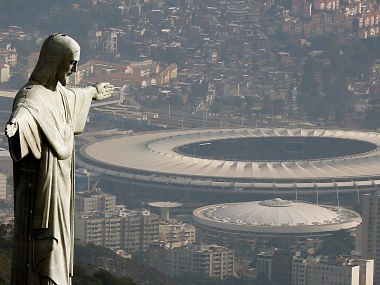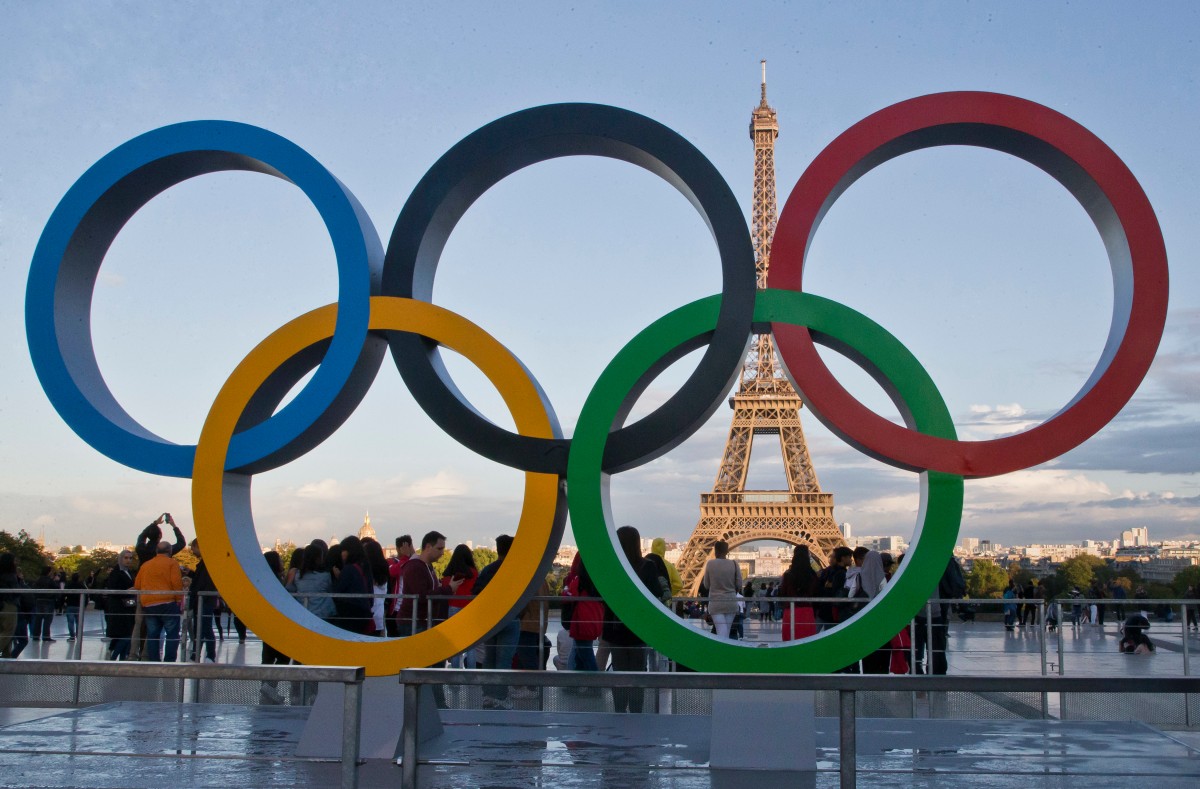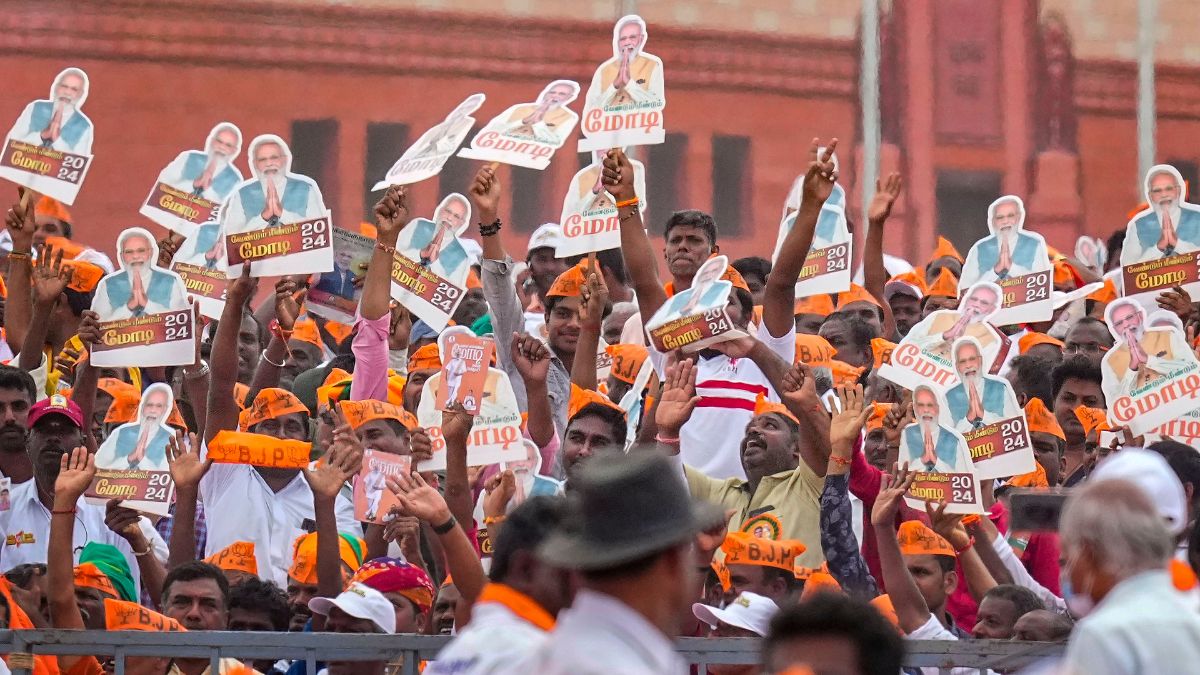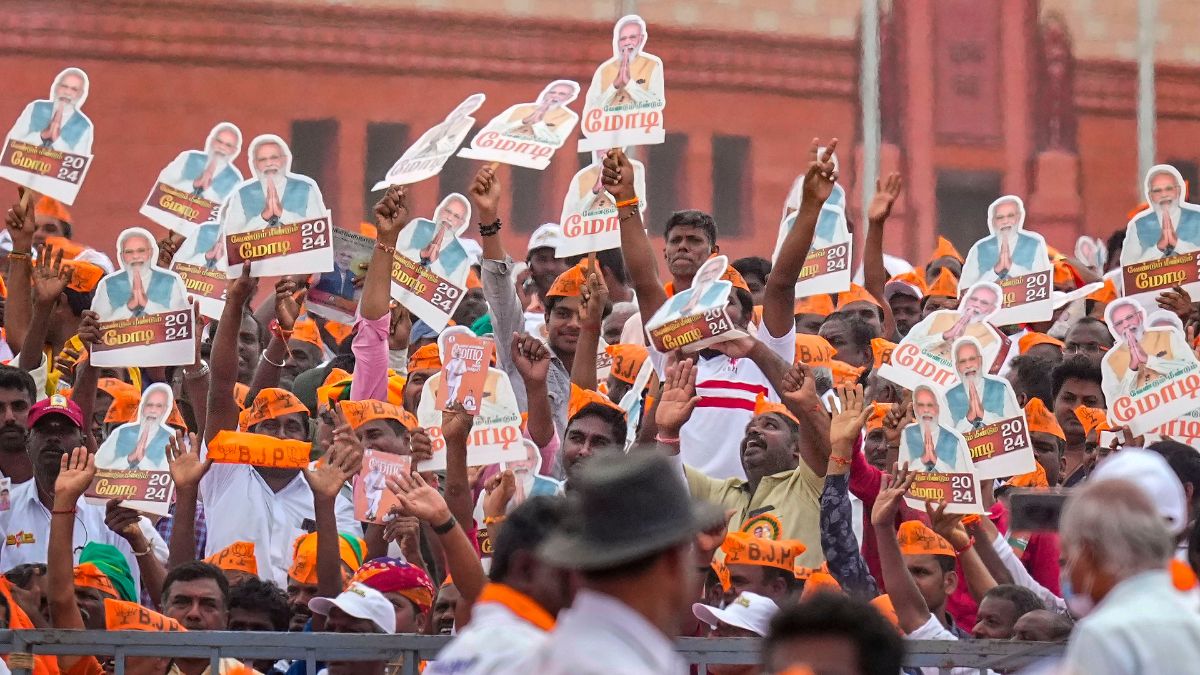“I am absolutely convinced that history will talk of the Rio de Janeiro before the Games and the much better Rio de Janeiro after the Olympic Games,” said Thomas Bach, the president of the International Olympic Committee at the closing ceremony Rio 2016. His remarkable appraisal was also a blatant twist of the truth.
***
Rio can be characterized as a city of dogs, tattoos and drugstores. They dominate the street view - dogs mitigate the loneliness of Cariocas often bunkered up in gated condominiums, tattoos are fashionable expressions of contemporary beauty and, on every corner, drugstores furnish the requisite, seemingly even indispensable, medicines to deal with the burden of daily life.
In Horto, tattoos and dogs are also omnipresent, but drugstores are not, and neither is the Brazilian tendency for hypochondria. Horto, in behind Rio’s lush Jardim Botanico [Botanical Garden> and between the upscale neighborhoods of Gavea and Lagoa, is a small, tight-knit community of 621 families. In the 1800’s Portuguese King João VI invited workers and slaves, who built the botanical garden, to live on the adjacent property. Ever since, generations of employees have lived in Horto, a tropical paradise of sprawling fauna and flora in the heart of Carioca-land, often the theatre of an all-consuming, urban frenzy, and often both infuriating and the cause of a psychosis.
During the Olympic Games, a federal court delivered a 90-day eviction notice to Horto’s residents. In Rio, and Brazil at large, Horto is among the most valuable and prized land - in the adjacent Jardim Botanico neighborhood the price per square meter is $3997, according to real estate index FipeZap.
The botanical garden argue that they need the land to expand their research institute, but residents contend that real estate speculation, with Globo, the behemoth of the Brazilian media landscape as a protagonist, is the motor behind their eviction notice. Jardim Botanico is an opulent neighborhood with gated condominiums and expensive bistros. It is also home to Globo’s headquarters. In the past, Globo has reported that Horto’s property is worth $3.29 billion. They characterized Horto’s community as an ‘irregular occupation.’ Globo executives serve on the ‘Friends of the Botanical Garden Association.’
Colorful murals, depicting scenes of Brazilian life and struggles, welcome one to Horto - a Brazilian football player holding the World Cup, while taking a selfie; a large broom mopping up a few houses, with apartment blocks rising in the background. It has a residential feeling, atypical for a favela. At the entrance gate, a white banner decries ‘The social function of property is not substituting livelihood for profit.’ It’s a reference to article 5, XXIII of the Brazilian constitution.
Luis Carlos de Souza lives at number 4, a white house with a small patio. He is a fervent gardener. Sweat from the sweltering heat trickles down from his bald head, over his face and down his neck. His T-shirt is slightly too big and hangs loosely over his shorts. With shaking hands, he shows the identity card of his grandfather Cypriano Alves de Souza and an old, fraying residency right document issued by the Ministry of Land.
“The last few years evictions have become normal,” said Carlos de Souza. “The world is here - the tourists came during the Olympic Games, witnessed marvelous spectacles, but we remain behind. In the lead-up to the Olympic Games we lost a bus line, so Horto has become less accessible. Horto is in a big fight.”
The story of Horto is not so different from the favela Vila Autodromo, which, at the edge of the Olympic Park, received global attention. The defense mechanisms of Horto are the same: unity within the community, connections with outside partners - universities and NGO’s, regular media exposure and creative responses, like the foundation of a museum. So far, the residents have been offered neither compensation nor alternative housing.
The Olympic Games have created a state of exception and with the real estate boom the pressure on favelas has increased,” highlighted Theresa Williamson, the executive director of Catalytic Communities.
“There is a dividing line between rich and poor in Brazil,” said Carlos de Souza. In Horto, that line is the Rua Pacheco Leao. Across the street, rich Cariocas also have houses embedded in the local greenery, but they have been left alone. “The eviction notice is a social and racial thing,” says Emerson de Souza, the president of Horto’s residents association.
***
In a VIP-box of the Maracana stadium Eduardo Paes sipped champagne and danced the Samba. Rio’s mayor was having a good time. Darks clouds with torrential rain had gathered over the iconic venue ahead of the closing ceremony of Rio 2016, but the weather had just cleared in time. The crowd had booed him during the flag handover ceremony to Tokyo, the next Olympic host, but Paes wasn’t flustered. He hugged friends and posed for selfies.
“Rio has transformed and is still a magic place,” said the president of the local organizing committee Carlos Nuzman during his speech towards the end of the ceremony. Approvingly, Paes nodded. As much as Rio was a vague purgatory, with its many contradictions and complexities, this was a city, where one could move things along, believed Paes.
Together with Lula da Silva, Brazil’s former president, and Sergio Cabral, Rio’s governor, Paes had been one of the key drivers in bringing mega-events to Rio and Brazil. “Now is our time!” belted out Lula when Rio was awarded the Olympic Games in 2009. “It’s here! Of the world’s 10 largest economies, Brazil is the only country that has not hosted the Olympic and Paralympic Games. This will be an unrivaled opportunity for us. It will boost the self-esteem of Brazilians; it will consolidate recent victories; it will stimulate new progress.”
But progress came for an elite few. It was ‘Ordem e Progresso [Order and Progress>,’ the tagline of the Brazilian flag, with a distinct whiteness. Social exclusion was the buzzword. “Brazil is impaired by greed and by a political class with a lack of ethics, and that leads to a rights-vacuum for the majority of the population,” said Emilia de Souza, the mother of Emerson de Souza and the former president of Horto’s residents association. “They don’t realize the potential of Horto and other favelas. The Olympic Games and World Cup are a moment of applying make-up. A lot of families have been evicted, it is bitter exclusion. You first have to attend to the basic needs of your population. Our reality is not concordant. ”
Carlos Carvalho was one of the Olympic Games’ main benefactors. The 91-year old businessman owned about six million square meters in and around the main Olympic site in Barra da Tijuca, which he acquired in a visionary move in the early 70’s. But his investment in the Olympic village, where the athletes were housed, may yield gargantuan profit - parts will be sold as luxury housing to wealthy Cariocas after the Olympic Games.
Barra da Tijuca was the gravitational point of the ‘greatest show on earth.’ Rio’s western zone is a long stretch of marshland, developed along the vision of urban planner Lucio Costa, into a garish copy of Miami with wide roads, giant shopping malls and gated condominiums. It’s a hub for nouveau riche and overpaid football players, tacky and misaligned with the history and imagery of downtown Rio, where postcard landscapes, European colonial architecture and teeming favelas dominate. Rio is vibrant, while Barra da Tijuca is sterile.
Rio’s bid for the 2012 Olympic Games was centered on Ilha do Governador, a middle-class island in Rio’s otherwise poor north zone. That would have profoundly changed the city, but Paes, who grew up privileged in Sao Conrado, funneled tens of billions of Reias, Brazil’s currency, in public funds in preparation for Rio 2016 into infrastructure projects in Barra, a region that scarcely needed further financial underwriting. Barra has benefited from the extension of metro line four, revamped highways and new rapid bus services.
Brazil’s golden age 2.0 is reserved for selected individuals. Back in the 1950’s and 60’s, Brazil harbored a sentiment of profound optimism with further industrialization, the blossoming of a new capital Brasilia, footballing primordially with Pele and Garrincha, the age of Bossa Nova and the many glorious aspirations accompanying a country ready to ascend the world order with an assured steadfastness. The military dictatorship, however, curtailed those dreams.
Anno 2016, pessimism pervades Brazil - the economy is slacking, corruption is rampant and the social fabric is frail. Paes – codename 171, a reference to “swindling” in the correspondent article of the Brazilian penal code – has neglected his city to the benefit of a wealthy business elite and real estate projects in Barra, spurring more gentrification in the city’s northern and southern region.
Brazil’s supposedly coming-of-age decade has turned into one of missed opportunities. “Rio and Brazil’s economy has had more money during the last ten years than in any other period in history, but the structural transformations that could have taken place were rejected for a mega events agenda,” said Christopher Gaffney, a geographer at University of Zurich, who has studied the impact of mega-events in Brazil. “There was the discovery of oil, a big oil deposit, and the commodities boom, but this money was blown on parties. That was irresponsible. A lot of structural problems have not been resolved. In the near future, they will have an even stronger negative impact on Brazilian cities.”
Not so far from Horto, the Estrada de Gavea meanders up a steep hill, all the way to Rocinha, Rio’s largest and iconic favela. With 180,000 inhabitants, it sprawls over the hill and back down to the border with lush Sao Conrado. In the distance, Barra da Tijuca lies hidden.
In the maze of tiny streets, ‘Nothing is gonna stop us now’ from Starship is blasted through speakers, providing a melodramatic nuance to the backdrop of a giant shantytown, with resourceful inhabitants who live within the remit of their dreary surroundings. It is Die Geworfenheit extrapolated.
Next to the restaurant ‘American Dream,’ advertised for with a photo of the Bald Eagle’s head, an open sewage is streaming. The dirt trickles down, the odor is pungent. A red couch, an old fridge and a wilted palm tree stand amid the funnel of sewage. Next to the sewage, a kid’s plush, pink rabbit is drying in the sun. In total, Rocinha has 23 open sewages.
‘Without proper sanitation, you can’t have health,” said Jose Martins, a leader of the group Rocinha Sem Fronteiras [Rocinha without borders>. ‘The government is only interested in marketing, the visible things.”
The sewage ends close to Sao Conrado, where metro line four passes on the way to Barra da Tujica and the Olympic Park. On the last Wednesday afternoon of the Olympic Games none of Rocinha’s dwellers entered the metro station that was only accessible with a ticket for the event - de facto sporting Apartheid. A lone Russian fan wandered around in the corridors of the station.
***
Upon arrival at Rio’s international airport Tom Jobim, the Olympic family, including the great, the good and a swat of royals, were shuttled, with a private chauffeur in the official Nissan Versas, adorned with a Rio 2016 logo, to leafy Barra. On the way, the ‘family’ had Olympic lanes around the city, so as not to be troubled by Rio’s incessant traffic gridlock. And yes, Rio 2016-branded walls masked the favelas.
They then picked up their accreditation and enjoyed themselves at the venues watching elite sports from prime seats, spent a $450 daily stipend - which is about twice the Brazilian minimum wage - or $900 depending on one’s importance within the big, fat and happy family, and slept at swanky hotels ringed by security and with credentials-only entrances.
The Olympic bubble is part of a social movement, or so the IOC believes. “These games have not been organized in a bubble,” said IOC President Thomas Bach on Saturday at a press conference. His statement was self-righteous and delusional.
The IOC’s modus operandi is sinister and perverse. The blueprint is always the same: jet in, replace national sovereignty with an IOC fiefdom, burden society with the costs, maximize and privatize the profits. The final step is simple: jet out.
“The shock doctrine is a way of understanding disaster,” explained Gaffney. “It was developed by Naomi Klein and looks at events like Hurricane Katrina or the invasion in Iraq. You create disasters in order to accomplish economic and political goals. Similarly, the Olympic Games and the World Cup install states of emergencies - disasters in a way. You get an emergency planning regime. You use a lot of public money, you shorten contracting periods, you loosen transparency laws and you implement it through rule of decree. Instead of having a country being bombed or terrorized by a foreign power, you have parties and fireworks, with people even celebrating this.”
“These mega-events are ‘neoliberal Trojan horses’ ushering in massive surveillance infrastructure and political repression,” writes American author Dave Zirin in his book ‘Brazil’s dance with the devil.’ “The countries change, but the scenario stays the same: a profit orgy and a tax haven for corporate sponsors and private security firms, obscene public spending on new stadiums and the brutal cuts that fall on the backs of the poor when the party’s over.”
FIFA, the IOC’s footballing equivalent, has excelled at the ploy, generating a $4.6 billion revenue from the 2014 Brazil World Cup. The IOC has toppled that with $5.6 billion, according to leading Brazilian newspaper Estado de Sao Paulo.
The Olympic Games were mired in controversy with the bad and the outright sleazy – first and foremost, the Russian doping scandal that once more underlined the IOC’s governing incompetence; second and foremost, Ireland’s Olympic chief Pat Hickey’s ticket tout arrest. It was the old world on a new continent - “O Mundo Novo’ [Meet The New World> was Rio 2016’s official slogan.
Indeed, a New World for whom exactly? Not for the IOC, not for the crowds that flocked to watch the sporting action. They came dressed in Tommy Hilfiger and Armani, and wore Ray-Ban glasses. Selfies and Facebook posts were compulsory. Daily head counts at the Olympic Park or other venues were disturbing, revealing very few black spectators. At the last World Cup, a survey showed that 90% of Brazilians attending the World Cup were white and rich, members of the upper middle class and elite. The Olympic Games were no different.
They often booed, much to the dismay of the IOC, whose corporatism doesn’t allow for jeering, only for paying with the right credit card for the right soda. “The elite public lacks the education to care for anything but themselves,” explained Juca Kfouri, one of Brazil’s leading sports journalists. “They have no sporting education. That is what you call the Brazilian elite. Humble people are respectful, but the elite have money to buy tickets and to do what they want.”
For the residents of Horto the Olympic Games were a fabled Disney World. “We are not participating in the Olympic Games, not because we have don’t tickets, but really, because we are excluded,” said Emilia de Souza. “We have not even been remotely close to any venue or sporting event.”
***
Belatedly, Brazil did embrace the Olympic Games, courtesy of gold medals in the final weekend in both football and volleyball - the measure of sporting success for the hosts. These were the medals Brazil desperately wanted, providing an injection of self-esteem, a medicine against the mongrel complex, conceived by Nelson Rodrigues after the 1950 World Cup defeat by Uruguay as ‘the inferiority in which Brazilians put themselves, voluntarily, in comparison to the rest of the world. Brazilians are the reverse of Narcissus, who spit in their own image. Here is the truth: we can’t find personal or historical pretexts for self-esteem.”
Judoka Rafaela Silva had won Brazil’s first gold medal. Her laurel was symbolic. Silva grew up in Rio’s infamous favela Cidade de Deus. At London 2012, the Brazilian suffered racial abuse after her disqualification. “I insisted judo is my life [after 2012>,” she said in a press conference. “People told me: ‘The place for you is as a monkey in a cage,’ but my place is in sports, in judo.”
Silva represented the ‘Bramerican dream’ – Brazil, a country of endless opportunities, where everyone can make it. The gold medal once again portrayed Brazil, at least very momentarily, as an egalitarian society and a success story.
For a number of athletes these Olympic Games were indeed the land of opportunities, an Eldorado in the Carioca capital: Usain Bolt and Michael Phelps saved the Olympic Games, the quadrennial sporting ultimacy, that had been slow-burning, meandering and confounding, but, at the same time, still a great human and wretched theatre during a 17-day obsession with wrestling, gymnastics, hockey and other understated sports.
The Jamaican and American ridiculed the competitors, restricting them to vying for a silver or bronze medal. Bolt sped away one last time at the Summer Games. The sprinter, who is too tall to sprint, yet too fast not to sprint, fulfilled his regal dreams of a treble-triple, composing his very own ninth symphony. With it, Bolt became the most compelling athlete of our times. In the pool, Phelps, the ultimate H2O pulverizer and, like Bolt, another transcendent athlete, and, arguably, the greatest Olympian of the modern Olympic Games, collected - for that is the verb - four more gold medals.
“The legacy of these Olympic Games is not tangible - it is the unforgettable memories.” said Kfouri. “You can’t argue about that - to see Usain Bolt and Michael Phelps in the stadium, to see Brazil win footballing gold and volleyball gold again. I always became emotional. It was unforgettable.”
Bolt and Phelps were mesmerizing, transmitting a deep, unadulterated joy, but Olympic magnificence wasn’t restricted to the celestial overlords on Mount Olympus: for the first time South Sudan participated at the Summer Games. Rio also welcomed the Refugee Team, much loved and admired, more so than their less fortunate counterparts scattered across Europe, North Africa and the Middle-East. Fiji won a glorious gold, a first ever, at the rugby sevens. From lane eight South African Wayde van Niekerk absolutely dismantled Michael Johnson’s 400-meters world record. In the gymnasium, American Simone Biles became a new icon in her sport.
“The Olympic Games make for sensational television: high performance, competitive sports in fabulously, constructed stadia in multimedia form generates amazing beauty, very compelling stories and taps into profound senses of nationalism,” explained renowned sports writer and sociologist David Goldblatt the enduring appeal. “For all its cosmopolitan core, that’s very important for the Olympics: it’s the teary moment while the national anthem plays and the gold medal is awarded, that is pulling in ratings. High-level sport is an incredible form of cultural performance and interaction. It’s truly universal and graspable by the entire planet because it’s non-linguistic. Sport is one of the last bastions and areas in our lives where we don’t want to think about the political implications.”
For India, Rio 2016 was another stinging indictment of sporting incompetence. Dipa Karmakar, PV Sindhu and Sakshi Malik excelled with elegant and performant outings in the gymnastics, badminton and wrestling respectively. At the Deodoro shooting range, Abhinav Bindra fought gallantly, but missed out, with the closest of margins, on a bronze medal. For the better part of Rio 2016, tough, India were a caricature. In total, 306 gold medals were decided. Indian won none.
So, with much bravado, the (non-Indian) athletes salvaged the Olympic Games, obfuscating the other organizational niggles that accompany any Olympic Games – rows of empty seats, muggings of team officials, inclement weather, traffic chaos and long travel distances. The initial lack of Carnival atmosphere, the overflow of green water and a stray bullet at a media center were further cause of concern.
***
And so, the Games of the XXXI Olympiad have come to an end. Rio remains a city of jarring inequality, a muggy kettle of friction, yet among both nature and inhabitants with curves of enchanting sensuality. Rio’s State government is bankrupt. Public services - hospitals, universities, schools and the police - are in short supply. The unemployment rate is searing. The political elite lobbied for the Olympic Games, not Rio’s ordinary citizens. At $11.5 billion, Rio 2016 came at too high a price for the city.
“Brazil didn’t have the conditions to host the Olympic Games,” said Carlos de Souza. “The money should have been spent elsewhere.” His words are punctuated with apprehension. De Souza is afraid of Horto’s fate now that the world’s focus will shift away from Rio.
Ultimately Rio organized the Olympic Games in impossible conditions. There was no apocalypse. Rio combined the last-minute preparation of Athens 2004, with the poor organization of Atlanta 1996, but pulled it off. The endeavor was titanic, the understated triumph merited.
But both Brazil and the IOC face a bleak future: at the closing ceremony, the power and strength of the next generation was a theme, but with the cycle of mega-events at an end in Brazil, the country of the future, as Stefan Zweig once put, has scarcely progressed. “There is no guarantee that Brazil will ever become a less unjust society,” commented Kfouri.
For the IOC, Rio 2016 was a public trial, with a guilty verdict. The Olympic Games in Rio de Janeiro were a further manifestation of ‘accelerated development,’ a mantra for uncritically placing public money in the service of private profit creating neo-liberal dream-worlds wherein democratic processes are suspended, public space militarized, and urban space restructured in the image of global capital, according to authors Davis and Monk. But there is a simmering sentiment that the Olympic Games in their current form are no longer compatible, or acceptable, in modern societies with different needs. That may well be the true legacy of Rio 2016.


)




)
)
)
)
)
)
)
)